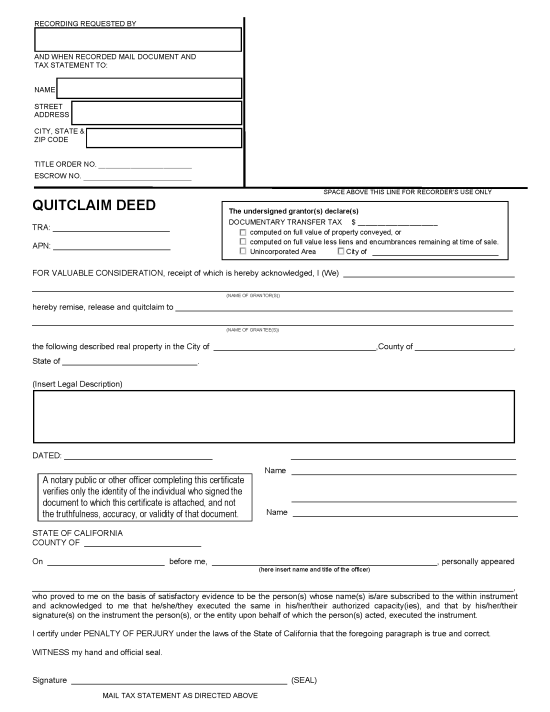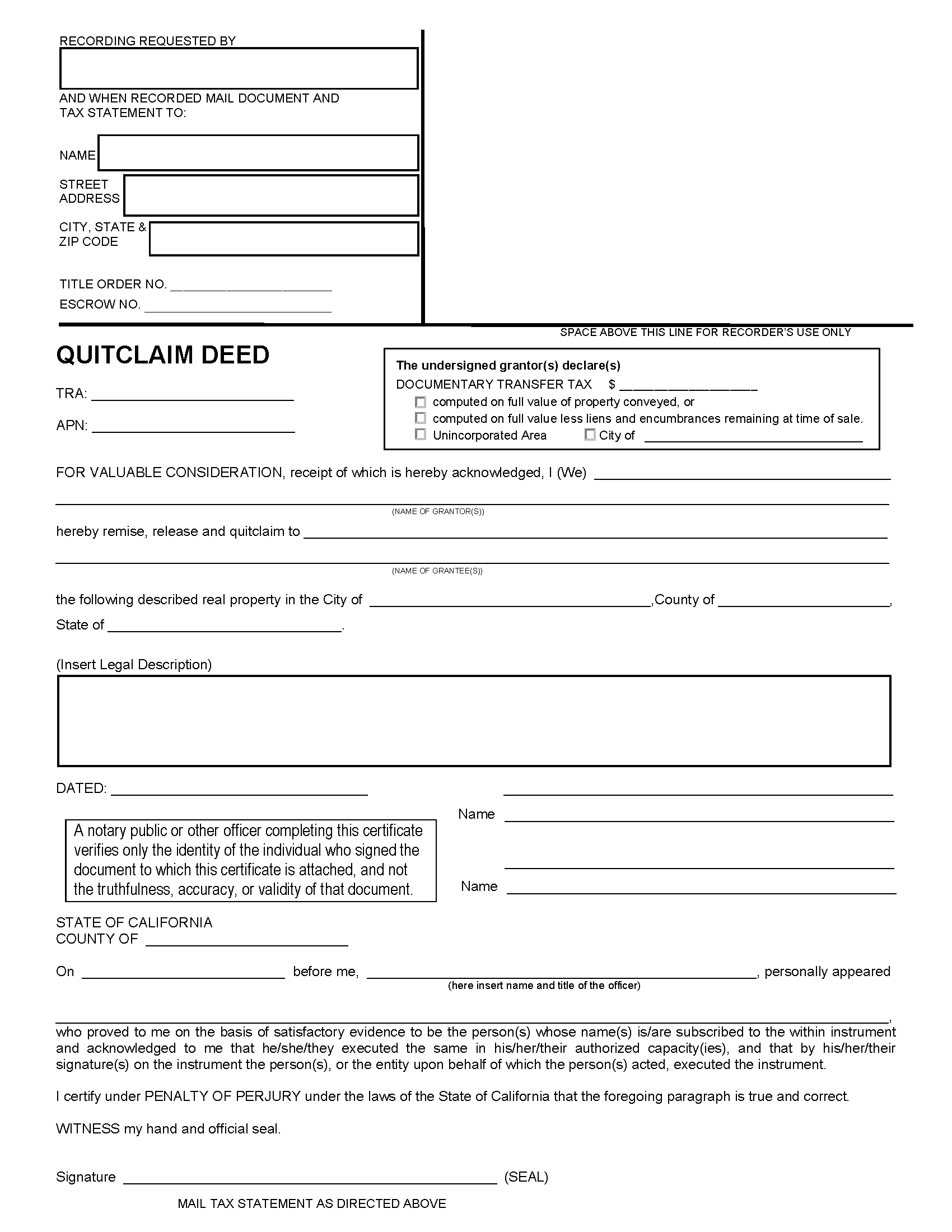Recording Details
- Signing Requirements – The grantor must acknowledge their signature before a notary public.[1]
- Where to Record – County Recorder[2]
- Recording fees – As of this writing, $10 for the first page, $3 per additional page.[3] A $75 fee may also be applied unless the new owner will occupy the property as their primary residence.[4]
Preliminary Change of Ownership Report (Sample) – This document must be filed at the time of recording when property ownership changes.[7]

